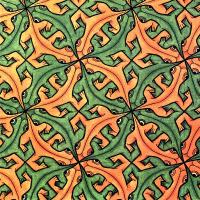Tin nhắn: 5
Nội dung: English
jctrulz (Xem thông tin cá nhân) 01:58:55 Ngày 11 tháng 11 năm 2013
Oijos (Xem thông tin cá nhân) 01:59:40 Ngày 11 tháng 11 năm 2013
jctrulz:Cu la filo skribas malbone? or Cu la filo skribas malbonen?Malbone.
Nile (Xem thông tin cá nhân) 02:14:23 Ngày 11 tháng 11 năm 2013
Or an h. Most people here prefer x though, because h is already in the alphabet.
jismith1989 (Xem thông tin cá nhân) 18:29:57 Ngày 11 tháng 11 năm 2013
Nile:Also, use an x after letters that should have a supersign/diacritic.The other advantage of using x is that the words will be in the vortaro, whereas they're not with h.
Or an h. Most people here prefer x though, because h is already in the alphabet.
As for the main question, adverbs (of which malbone is one) never take a final n (except to show movement).
gianich73 (Xem thông tin cá nhân) 18:51:44 Ngày 11 tháng 11 năm 2013
jctrulz:Cu la filo skribas malbone? or Cu la filo skribas malbonen?Mi pensas ke la gramatiko esta klara. Gxi diras: "Ĉe lokaj adverboj povas aperi la akuzativa finaĵo N por direkto: urben = "al la urbo(j)", hejmen = "al la propra(j) hejmo(j)". Sed adverbo neniam povas ricevi J-finaĵon." Vi povas trovi gxin cxi-tie en la sekcio "lernado".
Since we are in the English section, we are mandated to write in English. The grammar section, that you can find under "learning" in this site, clearly states that: "The adverbs of location can have the ending of the accusative N to express direction: Urben = to the city, hejmen = home (in the direction of the own house)". However, adverbs never get the ending J". Consequently, the correct one is Cxu la filo skribas malbone?.


